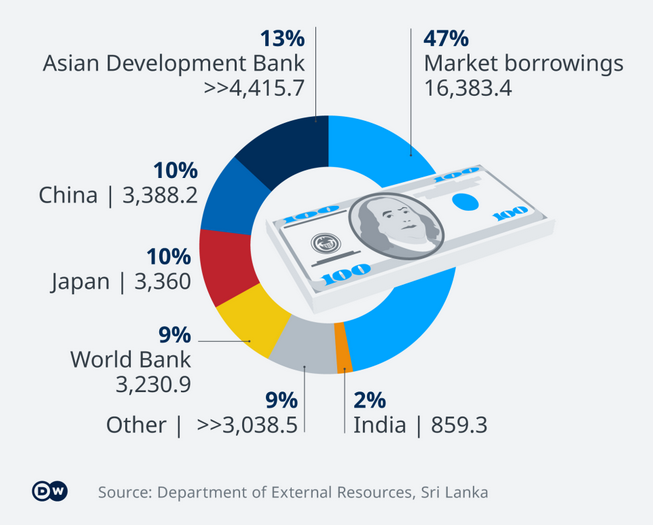In economics there’s the idea of how much a “game” nets, where a game is any economic activity. The ideal is to have positive sum games, where more good comes from the game than bad, and ideally all players of the game win. A classic zero-sum game is if you and I bet $10 on a coin flip: any win is precisely mirrored by loss. And a negative sum game is where people come out worse: a lot of wars are like this, no matter how much plunder, both sides are worse off at the end.
Just because a game is negative sum doesn’t mean it can’t be positive sum for a few people. War, again, is often like this. Masses of people may be killed, huge amounts of wealth destroyed and certain war profiteers may come out much richer and some politicians or generals much more powerful. Some soldiers may loot enough that war was better for them than peace.
The fundamental environmental critique of capitalism and industrialization is that it only looks like a positive sum game: that the damage we are doing to the environment (which includes climate change, but not just that) and to our health, makes it a negative sum game if one uses the proper time horizon (aka. if you won’t die before the bill becomes due) or if you include everyone (aka. being conquered by Britain was not good for Indians; being conquered mostly Europeans was not good for native North Americans, almost all of whom died) and capitalism has not been a marvel for most of the third world. Which is why, by the way, there are all those “best time to be alive ever” books which try to use dubious extreme poverty statistics to claim this is the closest we’ve ever gotten to utopia: they want to argue that capitalism and industrialization are positive sum games, at least for now.
These folks have no real argument against climate change and environmental collapse and tend to hand wave it with “technology will fix it” as if technology can un-extinct half the world’s species.
So in the big picture we’ve been playing a negative sum game for a long time. The destruction of the native civilizations of North America was a negative sum game. The impoverishment of India under the British East India company was a negative sum game (India started out with more industry than England, by a fairly wide margin.) Africa’s exploitation, from the slave trade to colonization was a negative sum game, which is not to deny they didn’t get some railroads and whatnot out of it. (The Belgians were the worst, but the French who are still making African nations pay them for having been conquered are mighty bad. England’s evils are well known.)
But we’re in a lot of local negative sum games. Wall Street types like to brag they “eat what they kill” and it’s accurate in all sorts of way. The entire run-up to 2008 was negative-sum: that’s why it took trillions to bail them out. All their profits came from creating much larger losses than their profits, then having other people pay them off and suffer a long light depression. And Central banks didn’t then go on to print trillions more because value was being produced after 2008, they had to print to keep covering the fact that real economic value was being destroyed.
Your average Wall Street executive is a sort of super-optimized human locust, getting fat by destroying real value. Private Equity as a whole is so clearly massively negative sum that if you try to deny it you live so far in a fantasy world there’s no point in talking. The entire neoliberal movement, with its poster-child policy of austerity was and is about damaging the real economy to make a small number of people richer.
A lot like those war profiteers we discussed earlier: they cause widespread misery, illness and death but they get very rich doing so.
(The military industrial complex is obviously negative sum, which, again, doesn’t mean it doesn’t benefit some people.)
The job of governments is to create positive sum games and to stop negative sum games. In some ways that’s almost their only legitimate function. (Any crime system with high recidivism, or large numbers incarcerated is negative sum, by the way, but boy, a lot of people get rich locking other people up.)
A society with a lot of negative sum games running can be compared to an animal with a lot of ticks attached, a tapeworm, and some nasty diseases. It’s supporting a lot of parasites, but one day it falls over dead after a great deal of suffering, and then the parasite have to try to find a new host. If they can’t, because they’ve infected the entire herd (or destroyed the grazing land), well, then they too die.
Welcome to the fin de siecle of capitalist society.

